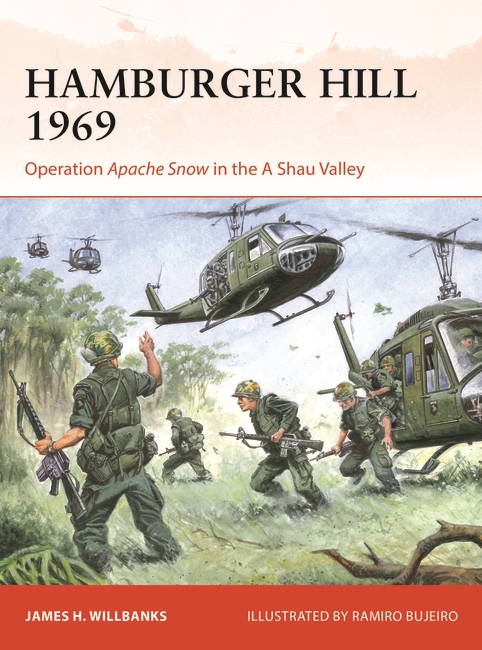
On the blog today, Dr. James H. Willbanks, decorated Vietnam veteran and former Director of the Department of Military History at the US Army Command and General Staff College, provides a summary of the bitter Battle of Hamburger Hill.
On May 10, 1969, the 3rd Brigade of the 101st Airborne Division, along with South Vietnamese forces, commenced Operation Apache Snow, a 2,800-man Allied sweep of the A Shau Valley in western Thua Thien Province (today known as Thua Thien Hue Province). The purpose of the operation was to cut off the People’s Army of Vietnam from Laos and forestall enemy threats to Hue and Da Nang in the coastal provinces to the east of the valley. The operation resulted in a vicious battle for Ap Bia Mountain (Hill 937), 1 mile east of the Laotian border. The mountain and surrounding area were heavily defended by the PAVN 29th Regiment. In fierce fighting directed by Major General Melvin Zais, commander of the 101st, the mountain came under heavy Allied air strikes, artillery barrages, and repeated infantry assaults. The communist stronghold was captured on May 20, in the tenth assault, when 1,000 troops of the 101st Airborne Division and 400 South Vietnamese soldiers fought their way to the summit of the mountain.
During the intense fighting for Ap Bia, 597 North Vietnamese were reported killed. US casualties were 56 killed and 420 wounded. Due to the bitter fighting and the high loss of life, the battle for Ap Bia Mountain was dubbed “Hamburger Hill” by the US media, a name derived from the fact that the battle turned into a “meat grinder.”
Since the operation was not intended to hold territory but rather to keep the North Vietnamese army off balance, Zais ordered his troops to abandon the mountain soon after the battle was over. North Vietnamese troops reoccupied the area a month later.
American public outrage grew over what appeared to be a senseless loss of American life for territory that was subsequently abandoned. Senator Ted Kennedy spoke out against the battle on the floor of the US Senate as a firestorm raged in the American media. The Nixon White House ordered General Creighton Abrams, commander of US Military Assistance Command Vietnam, to avoid such battles in the future. Because of Hamburger Hill, and other battles like it, the US started to shift its policy towards Vietnamization, wherein primary responsibility for the fighting would be handed over to the South Vietnamese as US forces began to withdraw from Vietnam.
Read more in CAM 409 Hamburger Hill 1969 by James H. Willbanks

Comments
You must be logged in to comment on this post. Click here to log in.
Submit your comment